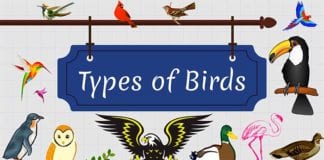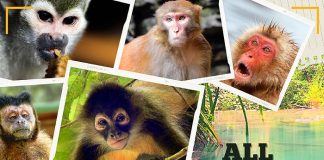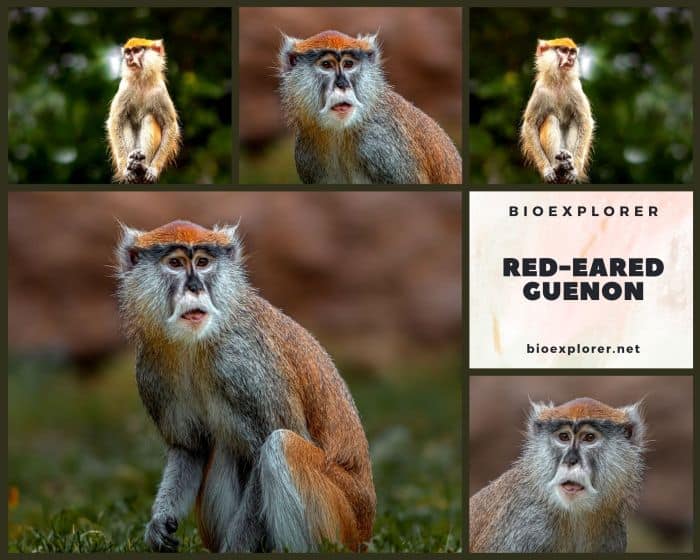
| Animalia | Primates | Cercopithecidae | Cercopithecus | Cercopithecus erythrotis |
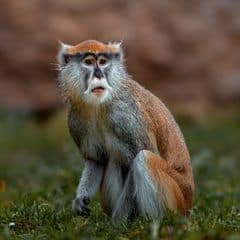

- Common Name: Red-eared Guenon
- Taxonomy Classification Year: 1838
- Monkey Size: 38.4 to 42 cm (15 to 16.5 in)
- Skin Color(s): Banded brown and pale
- Habitat: Forest, rainforest
- Diet: Omnivorous
- Native Countries: Nigeria, Equatorial Guinea, Cameroon
Red-eared Guenon Distribution
Red-Eared Guenon Characteristics
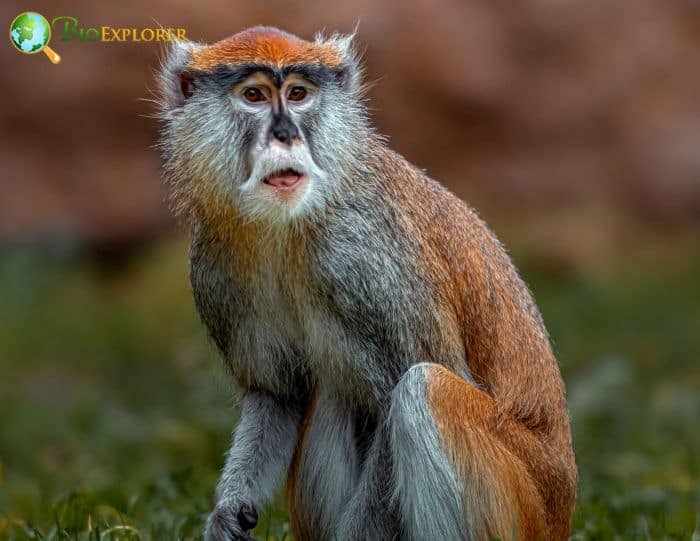
The red-eared guenon[1] (Cercopithecus erythrotis), also called the russet-eared guenon or red-eared monkey, is endemic to the tropical and subtropical lowland rainforests of Nigeria, Equatorial Guinea, and Cameroon.
- While this monkey gets its name from the tufts of russet (or reddish) hair that adorn the tips of its ears, its expressive and colorful face – one of the cutest of all monkeys – has the power to charm everyone. Okay, apart from literary hyperbole, it’s hard to deny the red-eared monkey’s handsome face.
- A distinctive reddish triangle (the same shade of red as the monkey’s ear tufts) paints the bridge of the nose, which extends down to meet the pale pink nostrils.
- Tight lips rest on a modest chin accented by long, messy strands of hair (such as are sometimes seen on an elderly grandfather), with a white underside that fades into a white fur collar.
- The yellow and white hairs protruding from the monkey’s cheeks are like expensive salon highlights, made even more noticeable by the black hair’s wisps that adorn the face’s lower half.
- Blue-black fur surrounds the red-eared monkey’s round brown eyes. It complements the facial features for an overall image that reflects sentience and personality.
- The shaggy cap on the round head of the red-skinned monkey and the silky fur that adorns its back appears to shimmer with gold in what’s called an agouti pattern, a fancy way of saying each hair has dark and light bands alternated around to achieve a grizzled appearance.
- Dark to pale gray hair covers the arms and legs, and the belly is pale gray. Its long red tail (the same shade as its ear tufts and nose triangle) is marked by a black hairy tip.
What Do Red-eared Guenons Eat?

The Red-eared Guenon feeds on Umbrella Tree (Musanga cecropioides), Persimmons (Diospyros), Leaf Flower (Phyllanthus) and African Nutmeg (Pycnanthus angolensis)[¶].
Red-Eared Guenon Facts
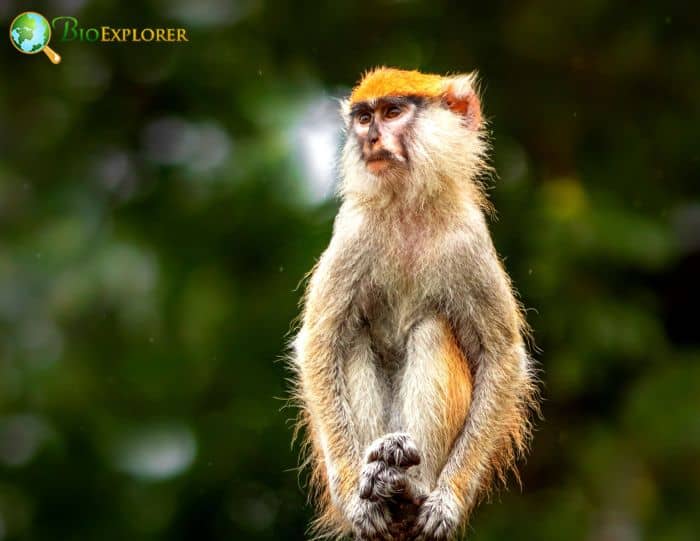
- Little research data is available on this species, possibly due to the nature of the red-eared guenon, which has been described as “unobtrusive“, “shy“, and “secretive“.
- Compared to other guenon monkeys, red-eared guenons are much calmer in their daily activities and draw less attention to themselves.
- They are active during the day, which makes them diurnal, and they spend most of their time in trees, which makes them arboreal.
- Scientific studies have shown that most guenon monkeys use quadrupedal locomotion (meaning they use all four limbs to move forward) as their primary means of locomotion, followed by jumping and climbing.
- Like other guenon monkey species, red-eared monkeys grimace (mouth open, sharp teeth bared) when angry or agitated.
Suggested Reading: Monkey Species List
Cite This Page
APA7MLA8Chicago
BioExplorer.net. (2024, December 26). Red-eared Guenon. Bio Explorer. https://www.bioexplorer.net/animals/mammals/monkeys/red-eared-guenon/.
BioExplorer.net. "Red-eared Guenon" Bio Explorer, 26 December 2024, https://www.bioexplorer.net/animals/mammals/monkeys/red-eared-guenon/.
BioExplorer.net. "Red-eared Guenon" Bio Explorer, December 26 2024. https://www.bioexplorer.net/animals/mammals/monkeys/red-eared-guenon/.















